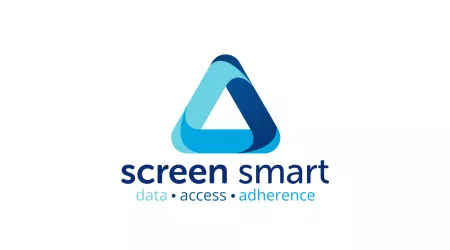When should I start getting screened for colorectal cancer?
Colorectal cancer rates are rising among younger adults, which is why current guidelines recommend starting screening at age 45 for average risk individuals. Early detection is key—screening can prevent colorectal cancer.

Current guidelines: begin colon cancer screening at 45
The colon cancer screening age has recently changed, due to the increase in diagnoses among younger people. The United States Preventive Services Task Force (USPSTF) recommends that all people at average risk begin colon and rectal cancer screening at age 45. People at higher risk may need to be screened earlier. Ask your doctor about screening, as your ethnicity, lifestyle, and family history will impact when you should get checked.
Why was the screening age lowered?
Colorectal cancer has become a reality for many people younger than age 50, and it’s the only population with a rising incidence rate.
In the U.S., approximately 10% of colorectal cancer cases are diagnosed in individuals under age 50.
Young-onset rectal cancer incidence has increased at nearly two times the rate of young-onset colon cancer.
Researchers predict that by 2030, colorectal cancer will be the leading cause of cancer deaths in people ages 20-49.
Is a colonoscopy the only way to screen at age 45?
Although colonoscopy is the gold standard, there are several ways to screen for colorectal cancer. The type of screening test that is right for you depends on your age, personal health history, and family history.
Beginning at age 45 (if you are at average risk), you should have either:
- A test that can detect signs of cancer in the stool. These tests include:
- Fecal Immunochemical Test (FIT) - Detects occult (hidden) blood in the stool
- Stool-DNA testing (Cologuard) - Tests for blood and DNA changes in the stool
- Guiaiac Fecal Occult Blood Test (FOBT) - Detects occult blood (or blood that can’t be seen with the naked eye) in stool
OR
- A visual exam of the colon and rectum such as:
- Colonoscopy - Examines the colon and rectum and removes polyps (growths that can turn into cancer) in the same procedure
- Virtual colonoscopy (CT Colonography) - Uses X-rays and computerized technology to take 2-D or 3-D images of your colon and rectum
- Flexible sigmoidoscopy - Examines your rectum and lower part of the colon with a lighted tube called a sigmoidoscope
Not sure which screening test is right for you? Your healthcare provider can help you choose the method that is right for you.

How do I know if I’m at average risk?
A person is considered at average risk of developing colorectal cancer if they have:
- No symptoms of colorectal cancer
- No family history of colon and rectal cancer
- No personal history of cancer
- No personal history of certain types of polyps
- No genetic links to Lynch syndrome, FAP, or other genetic syndromes
- No personal history of ulcerative colitis, inflammatory bowel disease, or Crohn’s disease
If you do have any of these risk factors, you may need to start screening before 45. Speak with your healthcare provider about your screening plan.
The truth about colonoscopies
Although a colonoscopy is a very safe and simple test, some people are hesitant about this screening method. Some of the reasons include anxiety about the prep, reluctance to fast the day before the procedure, and fear of sedation or anesthesia. Our resource guide below can help you find real answers to the questions you may have about having a colonoscopy.
What actually happens during a colonoscopy?
Taking away the mystery can help alleviate fears.
Are colonoscopies dangerous?
If you’re afraid of complications, this will ease your mind.
What you need to know about sedation for colonoscopies
Some people are nervous about being “put to sleep” for a procedure.
How long does the procedure take?
This step by step guide can help you and your driver plan your day.
My first colonoscopy was great, except for three little things
Hear about the process from someone who’s been there.
The prep: is it really that bad?
We’ve gone to the pros to find the best tips for your prep.

Who is at higher risk?
The current colon cancer screening age is 45 for those at average risk.
What does that mean for people who are at higher risk? And what exactly does "higher risk" mean?

Polyps: why it’s important to find them early
Colorectal cancer screening often focuses on detecting polyps. Follow these links for a quick study on these growths.

Moving forward: What do we do now?
While lowering the colorectal cancer screening age from 50 to 45 was a significant change, continued support for research and advocacy is crucial.
Still not sure about screening?
Here are 45 reasons to schedule your screening today
Sponsors
Screening questions & answers
Colorectal Cancer Screening FAQTop resources

National Cancer Prevention Month: Majority View Encouraging Screening as an Act of Love
Americans increasingly view colorectal cancer screening encouragement as an act of love, with new survey data showing rising openness about lifesaving prevention.

Katie Couric Joins the Colorectal Cancer Alliance To ‘LEAD FROM BEHIND’
Katie Couric joins the Colorectal Cancer Alliance and Ryan Reynolds’ Maximum Effort to expand LEAD FROM BEHIND, a star-powered campaign breaking stigma and urging lifesaving colon cancer screening. Colon cancer is the preventable cancer.

20+ Colorectal Cancer Alliance Screen Smart Partners Encourage Secretary Kennedy to Uphold USPSTF Goal to Improve Health
The Colorectal Cancer Alliance and more than 20 Screen Smart partners urge HHS Secretary Robert F. Kennedy Jr. to protect USPSTF’s evidence-based process and no-cost preventive screenings like colorectal cancer screening, which save lives and improve national health.











